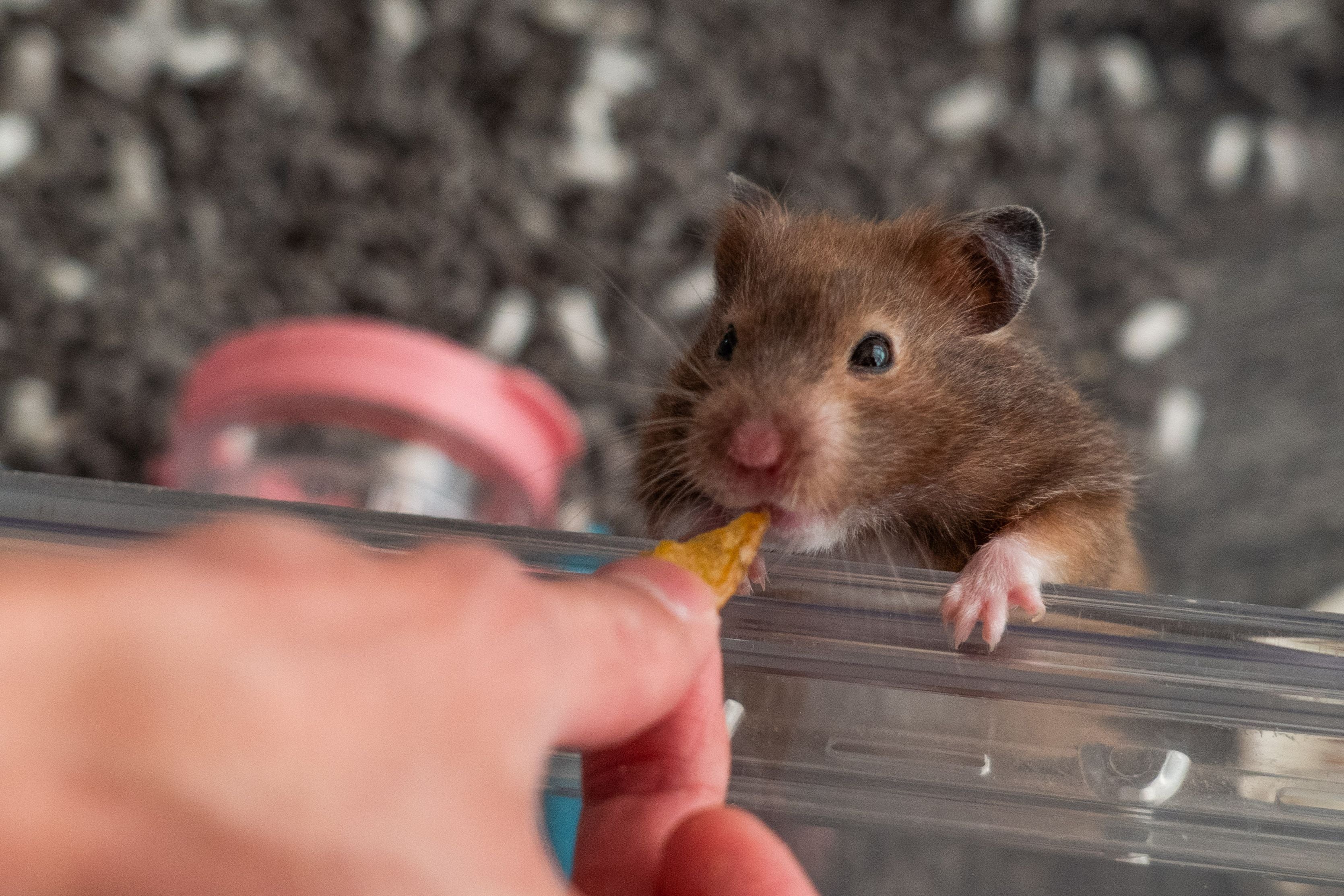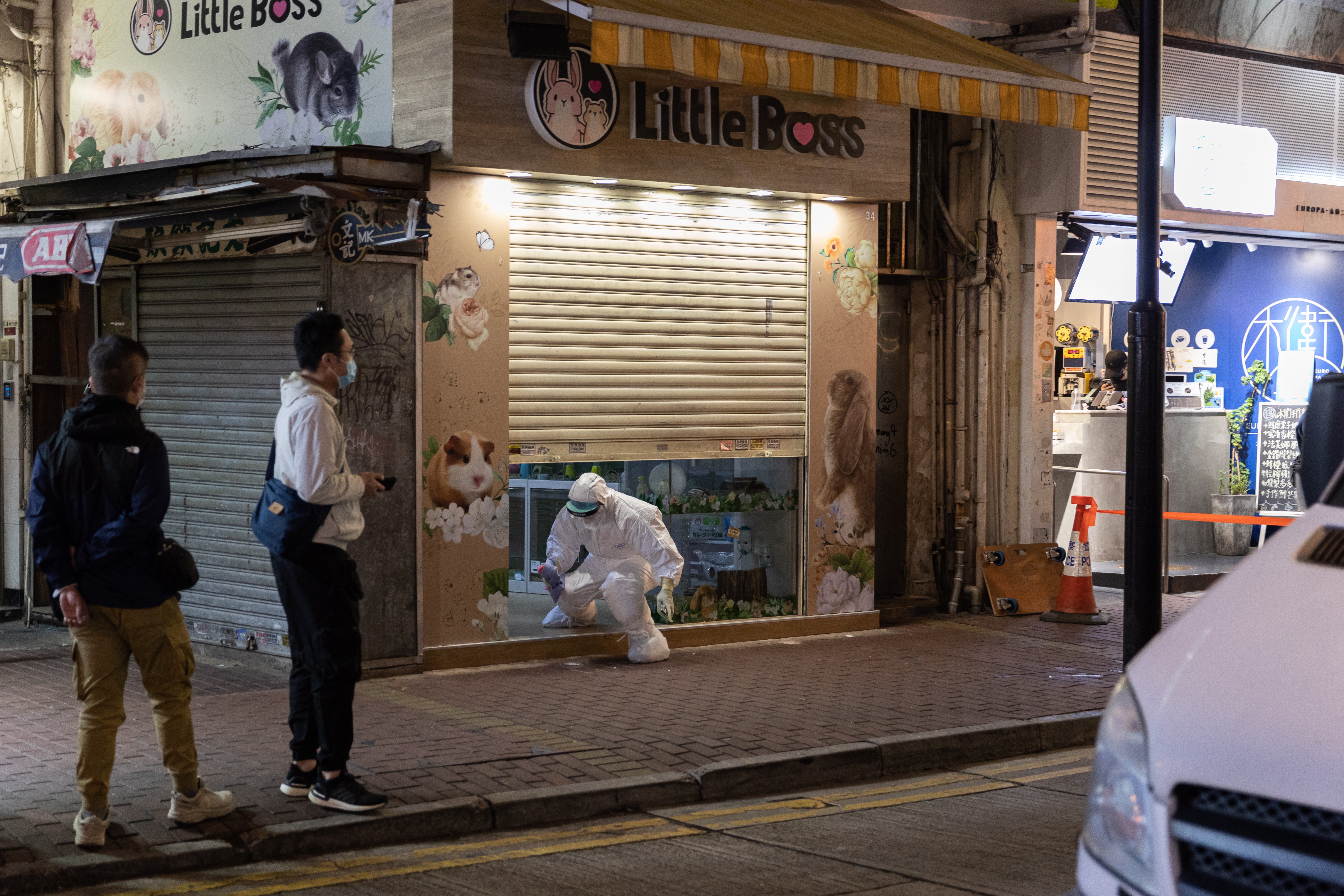Hong Kong tells people to stop sheltering their hamsters from cull
Government has asked pet owners to hand over all hamsters purchased in last four weeks after 11 rodents tested positive for Covid-19

Authorities in Hong Kong have asked residents not to stop people from giving up their hamsters to be put down amid a Covid-19 scare.
Earlier this week, the Southeast Asian region announced a drive to cull nearly 2,000 hamsters after 11 tested positive for the coronavirus infection at a pet shop. Officials asked pet owners to hand over the hamsters they purchased in the last four weeks to be euthanised.
But the government’s move has drawn severe criticism, and thousands of people have offered to either hide or adopt the unwanted hamsters. Some groups offered to backdate receipts to falsely show that hamsters were purchased before 22 December, which is the deadline set by the administration.
Many also waited outside collection centers to try to dissuade pet owners from handing in their hamsters.
The Carrie Lam administration called the backlash irrational and said that it had “humanely dispatched” the animals.
The Agriculture, Fisheries, and Conservation Department (AFCD) announced that any effort to try to save hamsters would be dealt with.
“If the people concerned continue with such action, or fail to return the hamsters taken away, the AFCD will stringently follow up and hand it over to the police for handling,” said the department.

The 11 hamsters that tested positive were imported from the Netherlands and sold at a local pet store called Little Boss. A worker at the store as well as a 67-year-old customer have also tested positive. Traces of the virus were also found at an off-site warehouse.
All pet shops selling hamsters in the city were also ordered to shut down for further testing and cleaning.
While the Hong Kong government has said that it cannot take any chances in its efforts to maintain a “zero-Covid” strategy, animal lovers and welfare organisations have criticised the harsh measures.
“From a veterinary and animal welfare perspective, it would be preferable to try to save the lives of those hamsters, [but] I am afraid it may not be doable,” Professor Nikolaus Osterrieder, dean of the college of veterinary medicine and life sciences at City University, said last week. “This is a super harsh measure, but if you are following a zero-Covid policy, that is why tolerance is very, very low.”
He added that the move could also lead to people abandoning their pets.
The Society for the Prevention of Cruelty to Animals (SPCA) also voiced concerns of abandonment and said it was “shocked and concerned” by Hong Kong’s decision.
Hong Kong has been struggling with a local outbreak of the highly-transmissible Omicron variant. After a lull of three months, Hong Kong has reported over 50 local infections in the community since the end of 2021.
The fresh outbreak has led to the reimposition of restrictions on flights and gatherings, while thousands of people have been put into makeshift government isolation facilities.
This is not the first time that Hong Kong has decided to cull animals to stem the spread of a disease. In 1997, Hong Kong culled more than 1.5 million chickens to end an outbreak of bird flu.
In the first year of the coronavirus pandemic, Denmark culled over 2 million mink after outbreaks at breeding farms. In mainland China, pet dogs and cats were killed after their owners tested positive for Covid or were quarantined for potential exposure.
Additional reporting by agencies
Join our commenting forum
Join thought-provoking conversations, follow other Independent readers and see their replies
Comments
Bookmark popover
Removed from bookmarks